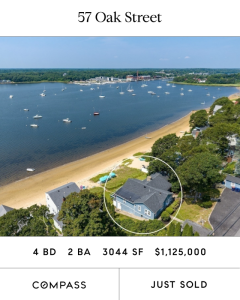Warren promotes infrastructure bill during Dartmouth visit
Story Location
United States
U.S. Sen. Elizabeth Warren believes the best way for towns like Dartmouth to prepare for the future is to make sure all aspects of infrastructure are funded and as up-to-date as possible.
“We’ve underinvested for four years,” she said. “These are the kinds of changes that bring our infrastructure into the 21st century and have us ready for the needs of a 21st century economy.”
The Massachusetts Democrat made her remarks during a visit to UMass Dartmouth on Wednesday where she focused on the infrastructure bill making its way through the U.S. Senate.
The plan consists of two parts.
The first is the bipartisan $1.2 trillion package that focuses on roads, bridges, water, sewage and broadband.
“That one is drafted and ready to go,” Warren said.
The second portion would have money go toward funding child care, universal prekindergarten, home- and community-based care, and the expansion of Medicare.
The proposed funding is part of a $3.5 trillion reconciliation bill working through the House.
Warren said she’s feeling optimistic about both packages getting passed through the both chambers of Congress.
“All the Democrats are headed in the same direction,” she said. “But we have no margin for error.”
If passed, Warren said the legislation would greatly benefit towns such as Dartmouth.
Along with money for upgrades along Route 6, federal funds would also be allocated toward projects to combat climate change — particularly with restoring and preserving wetlands and marsh habitats at coastal properties such as Ocean View Farm and nearby Allens Pond.
Already, stress from pollution and sea level rise is leading to die back areas, where high tides are leaving standing water on the marsh that kills the plants, according to The Buzzards Bay Coalition.
“You’re on the front lines here in Dartmouth,” Warren said. “Every time scientists go back and collect more data — they discover that the global climate problem is worse than we thought and the problems are coming at us faster than we thought.”
The climate package, she said, would also involve raising bridges and overpasses to lessen the effects of flooding, strengthening seawalls, and converting school buses to all-electric.
The senator also touted the legislation as a way to combat the labor shortage.
Although the shortage is affecting a variety of industries, restaurants and retailers are among the hardest hit, with many placing the blame squarely on higher unemployment benefits during the Covid pandemic.
“I’ve heard the same story, but the researchers say the numbers don’t add up,” Warren said.
In a paper published in February, UMass Amherst economist Arindrajit Dube examined the effect on employment after the $600 per week stimulus expired last July.
“I find little impact of job gains from the benefit reduction,” Dube wrote. “Overall, the weight of evidence seems to suggest that the unprecedentedly generous [unemployment] benefit levels during the Covid crisis did not have any substantially negative effect on jobs.”
If not unemployment benefits, fear of Covid may still be a factor — particularly for more public-facing positions like in restaurants and retail.
Warren said, if anything, the federal government did a lot to help small businesses amid the pandemic through its stimulus bills.
In Dartmouth, 525 businesses received $53.8 million in CARES Act loans and $1.8 million in grants from the Restaurant Revitalization Fund.
“I’m glad we made those investments,” Warren said. “They helped support a lot of small businesses and they kept our economy from cratering.”






























